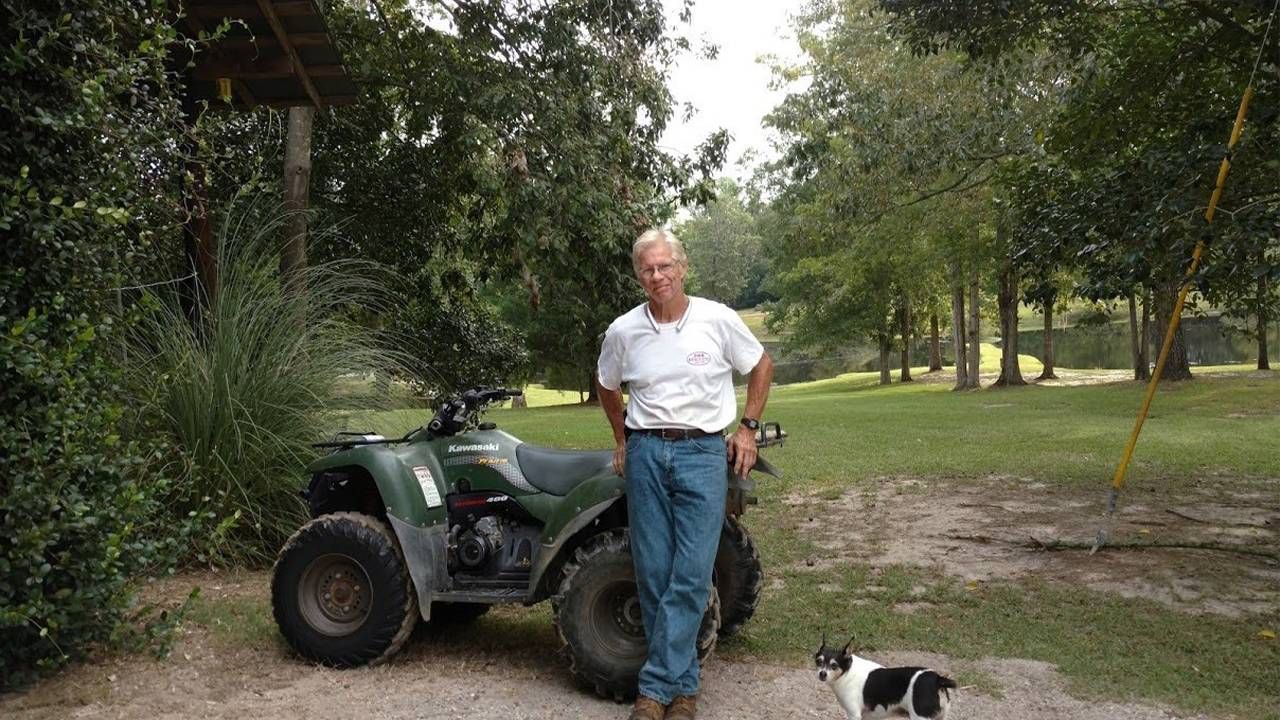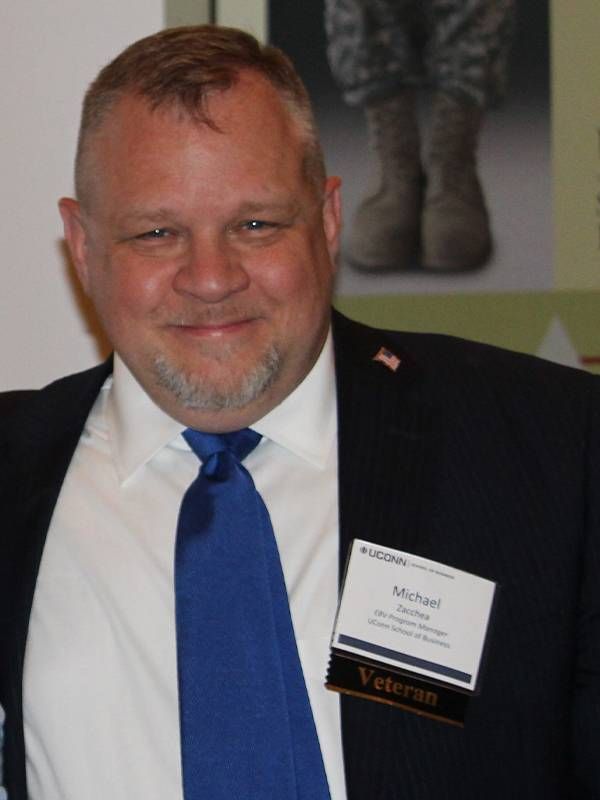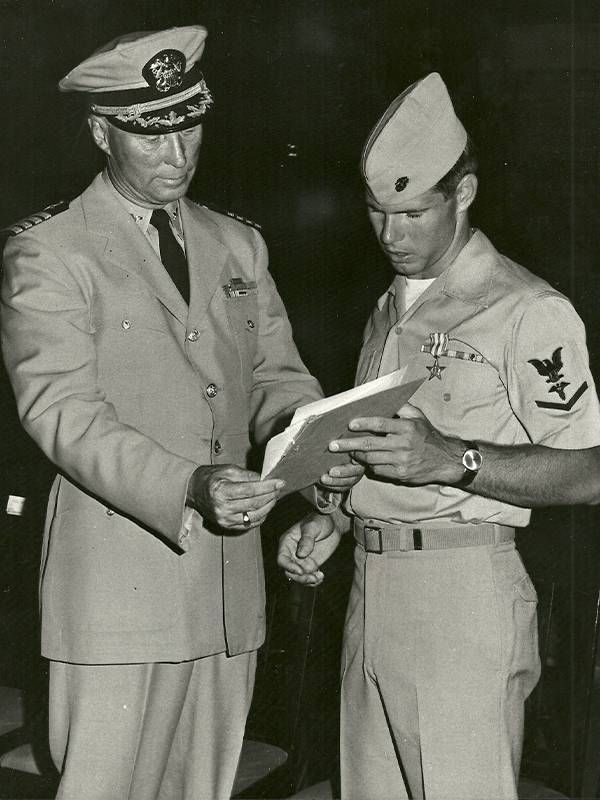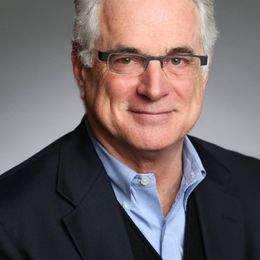2 Military Veterans Help Other Vets Transition to Purposeful Civilian Life
Meet Michael Zacchea and Larry Steward, offering useful services to former service members
Career transitions are hard for everyone, but the shift from military to civilian life can be particularly challenging.

Soldiers coming back from the Vietnam War were too often treated as damaged goods by employers, according to research by Alair MacLean, sociology professor at Washington State University, it remains to be seen how welcoming employers will be to service members returning from the long wars in Iraq and Afghanistan — especially those in the second half of life.
Veterans, generally speaking, bring many skills to their future employers, including an ability to work in multigenerational teams.
I grew up in a Navy family (and then Dad worked in the shipping industry). We moved every two or three years, living in places ranging from Fort Hamilton in Brooklyn, N.Y. to Guam. Perhaps that's why I was so taken by the efforts being made by two military veterans working with their peers to help them transition to a purposeful civilian life.
Michael Zacchea, 53, director of the University of Connecticut's Entrepreneur Bootcamp for Veterans with Disabilities, and Larry Steward, 78, founder of ReinventU and the Officers Transition Alliance — are doing important work, and on this Veterans Day, I'd like you to hear from them about how, and why, they're assisting vets; you'll see their interviews below.
Veterans, generally speaking, bring many skills to their future employers, including an ability to work in multigenerational teams. Many vets are worldly, having been exposed to different cultures and parts of the world during tours of duty. That said, some veterans with combat experience can't deal with loud noises; others may find it difficult to be surrounded by too many people in a crowded office.
For vets, finding jobs in the U.S. workforce means starting with career-transitions basics such as explaining how their skills translate into job attributes, learning how to network, and figuring out which type of employment could be fulfilling.
Joyce Cohen, co-founder of the My Future Purpose membership organization and creator of Boots to Backyards, a mentoring program helping veterans find new purpose, asks vets: "What are the skills you picked up that you could use in the future?" She adds: "It's like a jigsaw puzzle."
Now, let me introduce you to Michael Zacchea and Larry Steward:
Michael Zacchea: Director of the Entrepreneur Bootcamp for Veterans With Disabilities
U. S. Marine Corps Lieutenant Colonel Michael Zacchea was commissioned a second lieutenant in 1990. His military career included deployment to Somalia and Haiti. He was sent to Iraq in 2004 to build and lead in combat the first Iraqi army battalion trained by the U.S. military and was wounded by a rocket-propelled grenade during the second battle for Fallujah.
He's now medically retired and was awarded two Bronze Stars and Purple Heart for his service, as well as Iraq's Order of the Lion of Babylon.

Zacchea's first job after the military was on Wall Street, working on a trading desk at an energy firm. He hated it, especially because soldiers he knew were still being wounded and killed in Iraq and Afghanistan. So, Zacchea began earning his MBA at the University of Connecticut part-time and got his degree in four years.
A professor at the school encouraged him to research veteran entrepreneurship programs. He learned there wasn't one in Connecticut, despite a documented track record of success elsewhere. So, in 2010, Zacchea created a local program targeted at disabled veterans: the Entrepreneur Bootcamp for Veterans With Disabilities, which mostly helps vets and family members start businesses.
"On the face of it you're starting a business, but what it's really about is creating a community of veterans," he says. "We believe entrepreneurship is a really significant force in the reintegration into civilian society."
The first bootcamp cohort had 13 graduates. The latest class is online because of the pandemic; it numbers 21 veterans and one caregiver.
Most of Zacchea's classes include caregivers, actually. The spouse of a disabled veteran often must leave their job to be a caregiver, but starting a home-based business lets them generate an income while caring for the vet.
Zacchea's grads have started nearly 190 businesses, although only about 150 are still operating. Most of the shuttered businesses happened for health reasons.
About a quarter of the home-based businesses are in architecture, construction and engineering; another quarter are in IT; another quarter involve supply chain management or brokering and the remaining are an eclectic mix ranging from dog businesses to concierge services.
Why entrepreneurship?
Many vets are comfortable with advanced technologies; they've been trained to act independently on missions and military leaders learn multiple skills, from supply chain management to project planning.
"The military is much more entrepreneurial than people think," says Zacchea. "Especially small-unit leaders in the military, who are essentially running a small business."
Another reason: building a business is an inherently optimistic act. You're creating something that didn't exist. Zacchea says entrepreneurship is "not just economic integration to create a new identity for veterans, but it's also a service program to build something."
Larry Steward: Founder of ReinventU
Steward joined the Navy in 1962 after graduating from high school in Scottsdale, Ariz. In those days, young men either joined the military or waited to be drafted.
Steward became a medic, attended a Naval medical school and spent time in Okinawa, Japan. Eventually, with the Vietnam War heating up, he found himself in Danang.

Steward was involved in a battalion-size operation when a Marine buttonholed him and said his group needed medical help. He managed to get to the Marines under fire, but then got shot in the back.
"The immediate sensation was like being hit by a hot axe," he recalls. "The other thing is I got my ticket home."
Steward was awarded several medals for his service, including a Silver Star.
He then went to college and proceeded to work in the advertising industry. Steward enjoyed it but felt his career didn't have much purpose. He wanted to find a way to help others with their careers, so he opened a career-consulting shop. "It never got off the ground," he said.
Next, Steward worked for a corporate outplacement firm, became a home improvement contractor in Connecticut and New York and eventually decided to his own encore-career advising business focused on working with veterans looking to help with the greater good.
That's what he's been doing since 2017, through ReinventU, working out of his home in Aiken, S.C. and through the national Encore Network organization.
"I have a career full of transitions," Steward says. "That's why I consider myself a transition expert."
The military officers he consults with typically have a long launchpad for their transition to civilian life, perhaps as much as a year or two. His job is helping them figure out their skill set and finding an organization with a culture reflecting their values.
"I have a career full of transitions," Steward says. "That's why I consider myself a transition expert."
The four officers in his Officers Transition Alliance group are in their late forties; one will be 51 when he leaves the military.
Steward notes that much of preparing for a transition involves cultivating an entrepreneurial mindset, whether the goal is to start a business or not.
"The process of getting a job or starting a business is similar," says Steward. "The process you're learning is preparation for future transitions."
As for himself, Steward has no intention of retiring. "Right now, this is the most exciting period of my entire career, my entire life cycle," he says.
After speaking with Steward and Zacchea, I'm more convinced than ever that veterans finding purpose and a paycheck are essential to the health of the U.S. economy.
On November 11, it's important to remember what we owe military retirees as a society. And thinking about the U.S. economy, it's critical for us to understand how much better off we'll be when our vets have successful transitions to civilian life.


